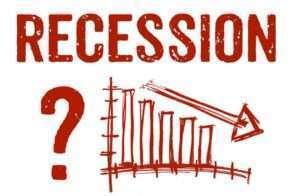How to Protect Your Money During a Recession

Economic recessions are inevitable events in the economic cycle of any nation. During these periods, economic instability can put a strain on the personal finances of many individuals. However, there are measures you can take to protect your money during a recession and mitigate the negative effects. In this article, we will explore some key strategies to keep your financial assets safe.
Create a Realistic Budget
One of the first steps to protect your money during a recession is to create a realistic budget. This will help you keep track of your expenses, identify areas where you can save, and plan your financial future. Be sure to include your monthly income and expenses, and try to cut non-essential expenses. Reducing unnecessary spending will give you greater financial flexibility during tough times.
Save Money
Setting aside an emergency fund is crucial for facing recessions. Experts recommend having at least three to six months’ worth of essential expenses saved in a savings account. This will provide you with a financial cushion in case of job loss or other emergencies. Automate your savings so that a portion of your income is automatically deposited into a savings account each month.
Reduce Debt
Having less debt during a recession is a significant advantage. Try to reduce your debt, especially high-interest debt, as much as possible. The more you reduce your debt, the less interest you’ll pay in the long term, which will improve your financial situation. Moreover, reducing debt will give you more flexibility in your monthly budget.
Diversify Investments
If you have investments, make sure to diversify them. Instead of concentrating all your investments in one asset class or sector, spread your portfolio evenly among stocks, bonds, real estate, and other financial instruments. Diversification helps reduce the risk of significant losses during a recession.
Plan for the Long Term
During a recession, you may be tempted to make impulsive financial decisions. However, it’s important to maintain a long-term perspective and avoid panic. Invest time in your financial education and seek expert advice if necessary. Financial markets have shown resilience over time, so having a long-term strategy is essential.
Monitor Expenses
During a recession, it’s essential to keep expenses in check. Monitor your spending carefully, look for ways to save on non-essential items, and shop wisely. You can also search for deals and discounts to maximize your purchasing power.
Ensure Your Future
Protecting your financial future is crucial during a recession. Make sure you have adequate life and health insurance. Additionally, consider estate planning to protect your assets and heirs.
Create Additional Income
During a recession, you may want to explore additional sources of income. This can include part-time jobs, freelance work, or investments in secondary activities. Having extra sources of income can provide supplementary financial support when it’s needed most.
Maintain a Positive Mindset
Finally, it’s essential to maintain a positive mindset during a recession. Optimism and resilience can help you overcome challenging times. Remember that recessions are cyclical, and over time, the economy will recover.
In conclusion, protecting your money during a recession requires planning, discipline, and resilience. Creating a budget, saving money, reducing debt, and diversifying investments are key steps to successfully navigate economically challenging periods. By maintaining a long-term perspective and seeking additional sources of income, you can improve your financial situation and successfully weather an economic recession.
